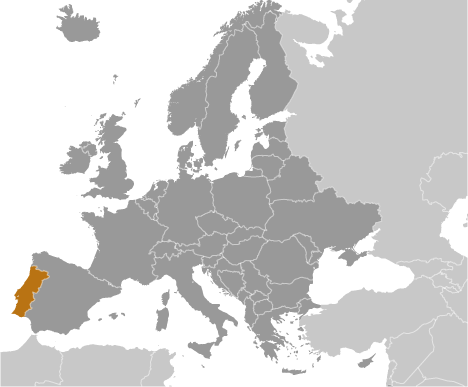HISTORICAL BACKGROUND
The Constitution has included a right of access to information since 1976. Article 268 of the 1989 Constitution states:
1. Citizens are entitled to be informed by the Public Service, when they so require, about the progress of proceedings in which they are directly interested and to know the final decisions that are taken with respect to them. 2. Citizens shall also enjoy the right to have access to administrative records and files, subject to the legal provisions with respect to internal and external security, investigation of crime and personal privacy. 3. Administrative action shall be notified to interested parties in the manner prescribed by law; it shall be based on stated and accessible substantial grounds when it affects legally protected rights or interests. 4. Interested parties are guaranteed effective protection of the courts for their legally protected rights or interests, including recognition of these rights or interests, challenging any administrative action, regardless of its form, that affects these, enforcing administrative acts that are legally due and adopting appropriate protective measures. 5. Citizens are also entitled to object against administrative regulations that have external validity and that are damaging to their legally protected rights or interests. 6. For the purposes of paragraphs 1 and 2, the law shall fix the maximum period within which the Public Service must respond.(1)
The 1993 Law of Access to Administrative Documents (LADA) allows any person to demand access to administrative documents held by state authorities, public institutions, and local authorities in any form.(2) Requests must be in writing. Government bodies must respond no later than 10 days after receiving a request.
The Act does not apply to documents not drawn up for an administrative activity such as those relating to meetings of the Council of Ministers and Secretaries of State or personal notes and sketches. Access to documents in proceedings that are not decided or in the preparation of a decision can be delayed until the proceedings are complete or up to one year after they were prepared. Documents relating to internal or external security and secrecy of justice are protected under special legislation. Access to documents with personal information is limited to the named individual and can only be used for purposes for which it is authorized. The authority can refuse access to documents that place commercial, industrial or company secrets in danger or violate copyrights or patents.
Those denied can appeal to the Commission of Access to Administrative Documents (CADA), an independent Parliamentary agency.(3) The CADA can examine complaints, provide opinions on access, review practices and decide on classification of systems. Public employees have a duty to cooperate with the CADA, or face discipline. Its decisions are not binding so if an agency continues to deny access, further appeal can be made to an administrative court. The CADA received 527 requests for advice (down from 542 in the previous year) and issued 330 opinions in 2004.
Bodies are required to publish every six month all decisions, circulars, guidelines and any references for documents that have an interpretation of enacted laws or administrative procedures.
The COE GRECO Committee reported some problems with the law in their 2006 review:
their right of access is not always effective in practice. Among the reasons put forward for this on the visit were: i. the excessive time taken by certain departments to supply requested information (for example, concerning public procurement and building permits); and ii. procedural (occasionally protracted) delays, particularly when the access commission is required to give a prior opinion, which can sometimes take up to two months. The Portuguese authorities have nevertheless indicated that the information delivery procedures are not normally slow and that the commission's prior opinion is warranted in certain touchier cases such as access to documents with personal data identifying third parties. The GET therefore observes that the Portuguese authorities should implement a more proactive policy on access to official documents and review the procedural constraints that lead to delays (occasionally protracted), with a view to giving proper effect to individuals' right of access to official documents.(4)
Portugal signed the Aarhus Convention on Access to Information in June 1998 and ratified it in June 2003. The LADA governs access to environmental information. In 1998, the European Commission issued a reasoned opinion that Portugal was not complying with the 1990 EU Directive on Access to Information. It closed the proceeding in 2000 after Portugal made modifications to the LADA. The National Assembly approved a new law implementing the Convention and 2003 EU Directive in April 2006.
A working group made up of the Ministry of Justice, Ministry of Economy and Ministry of Finances is developing a bill to amend the LADA to implement the requirements of the EU Directive on the re-use and commercial exploitation of public sector information (2003/98/EC).(5)
The Law of State Secrecy sets rules on the classification on information harmful to the state security.(6) The Commission for the Protection of the State Secret oversees the Act. Information can be classified for four year periods.(7)
The Act on the Protection of Personal Data allows any person to access and correct their personal information held by a public or private body.(8) It is enforced by the National Data Protection Commission.(9)
2004 freedominfo.org Global Survey Results - Portugal
NOTES
Constitution of the Portuguese Republic, 1997. http://www.parlamento.pt/leis/constituicao_ingles/IND_CRP_ING.htm
Lei nº 65/93, de 26 de Agosto, com as alterações constantes da Lei nº 8/95, de 29 de Março e pela Lei nº94/99, de 16 de Julho. http://www.cada.pt/PAGINAS/ladaing.html. See http://www.cada.pt/PAGINAS/acessoing.html for a detailed overview of the Act.
Homepage: http://www.cada.pt/
GRECO, Second Evaluation Round Evaluation Report on Portugal Greco Eval II Rep (2005) 11E 12 May 2006.
See EU Information Society, Public Sector Information: Implementation: Status.
Law of State Secrecy no 6/94, of 7 April 1994. http://www.terravista.pt/guincho/3938/Segredo%20de%20Estado.doc (in Portugese).
http://www.cada.pt/paginas/acessoing.html
Act nº 67/98 of 26 October 1998 on the Protection of Personal Data (transposing into the Portuguese legal system Directive 95/46/EC of the European Parliament and of the Council of 24 October 1995 on the protection of individuals with regard to the processing of personal data and on the free movement of such data). http://www.cnpd.pt/Leis/lei_6798en.htm
Homepage: http://www.cnpd.pt/





















